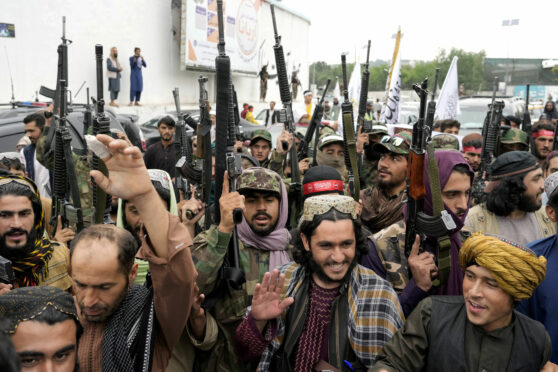
What does the future hold for Afghanistan? Nothing close to normality.
Through force and terror, and also diplomatic cunning, the Taliban in Afghanistan in the past year undid two decades of economic modernisation and political empowerment.
None of this is good for the West. Taliban Afghanistan now parallels the one before September 2001 – a heaven for those violently opposed to Western values. The difference now is that all international actors are trying to have working relations with the Taliban.
The West is losing because countries that otherwise and elsewhere threaten the West are forging mutually advantageous relations with the Taliban. True, no government has yet recognised the Taliban. But that has not stopped China – a country Western governments justly accuse of widespread persecution of its own Muslim minorities – from getting close to the Taliban. China already has economic and infrastructural inroads into Afghanistan. Beijing’s many meetings with the Taliban have translated into not only planeloads of aid, but also now military training.
Russia, the successor to the eight-year brutal Soviet war in Afghanistan, and a candidate for Taliban rage, is instead building relations. That fits with broader, successful and worrisome Russian efforts to minimise the effects of Western economic and political isolation following the Ukrainian invasion. Afghanistan could well become part of Moscow’s new constellation of relations with otherwise outcasts like North Korea and Iran. Amid Western sanctions on Russia, the Taliban are even looking now to buy its oil.
The Taliban continues to foster an internal climate that nourishes those with ideological and historical hatred of the West. Today’s Afghanistan resounds with that of two decades ago, which let Al Qaeda concoct the 9/11 terror attacks. The US wanted to kill Al Qaeda terrorist leader Ayman al-Zawahiri in any case, and anywhere. The US’s lethal drone strike in Afghanistan against him last month evidences Al Qaeda’s deep presence, and signals the measures to which the West will go.
One lasting, subtle feature inside Afghanistan comes from two decades of international support for the empowerments of many Afghans, and especially those intrinsically opposed to Taliban rule. Probably the Taliban have been slightly less brutal in their takeover because they face resistance. But that resistance will be interpreted as Western sabotage, and if such were even needed, that will heighten Taliban hostility to the West. And its zeal to support those with anti-Western intentions.
In all of this the West still does, and has, to engage with the Taliban. Genuine humanitarian concerns implore Western governments and agencies. Western aid continues and international aid workers are on ground. They are needed. Afghanistan’s population faces multiple crises. And Western governments know well that socio-economic suffering breeds more menace, and which cannot be contained indefinitely inside Afghanistan.
So Western talks with the Taliban continue. The West is being outpaced, and outgunned but, at a minimum, it needs to know what it faces from the maelstrom that is Afghanistan.
Professor Rick Fawn is a specialist in international security at the University of St Andrews

Enjoy the convenience of having The Sunday Post delivered as a digital ePaper straight to your smartphone, tablet or computer.
Subscribe for only £5.49 a month and enjoy all the benefits of the printed paper as a digital replica.
Subscribe